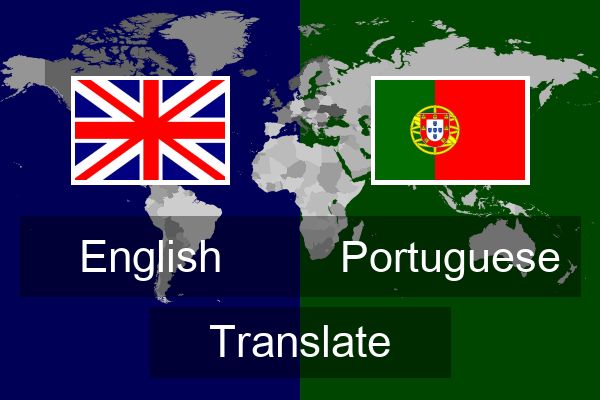Top Tips for Perfect English to Portuguese Translation Provider
Attaining remarkable English to Portuguese translation requires greater than mere word-for-word conversion; it demands an understanding of cultural subtleties and etymological intricacies. Selecting certified translators who are both proficient and culturally conscious is extremely important. Equally essential is the method of localization, which involves customizing web content to local variants. Additionally, using contextual references makes sure that the original tone and significance are preserved. Nonetheless, the journey does not end there; an extensive review and editing and enhancing process is necessary. What other crucial aspects should be thought about to boost translation quality even more?
Understand Cultural Nuances
When equating from English to Portuguese, realizing the social subtleties is vital for producing a powerful and precise message. The Portuguese-speaking globe is diverse, incorporating numerous regions, each with its unique customs, expressions, and social norms. A translator must be attuned to these nuances to make sure that the translation not just shares the desired message yet likewise resonates with the target market.
For instance, idiomatic expressions in English may not have direct counterparts in Portuguese. An expression that works well in one society could bring about confusion or misinterpretation in another. Comprehending regional languages and variations, such as those discovered in Brazil and Portugal, is essential; words may hold different undertones or uses relying on the place.
Furthermore, cultural context plays a significant duty in translation. Factor to consider of historical, social, and political factors can influence language options and tone. This cultural awareness enables the adjustment of content that lines up with neighborhood values and assumptions, thereby improving the effectiveness of interaction. Eventually, a complete understanding of social nuances is vital for supplying translations that are not only linguistically precise however likewise culturally relevant and engaging.
Choose Certified Translators
Choosing qualified translators is an essential action in making sure the precision and top quality of English to Portuguese translations. A translator's competence not just incorporates language efficiency but also a deep understanding of cultural context, idiomatic expressions, and industry-specific terminology. When selecting a translator, focus on those with official training in translation researches or grammars, as well as appropriate qualifications that show their specialist capability.
Experience plays a pivotal function also; translators specializing in certain areas-- such as lawful, clinical, or technological-- are most likely to deliver exact translations tailored to the sector's standards (English To Portuguese Translation). In addition, consider their portfolio and client reviews to assess their previous job quality and dependability
Engage translators that are native Portuguese audio speakers, as they have a natural understanding of the language's nuances and local languages. This experience enhances the translation's credibility and performance.
Usage Contextual Referrals

When translating, it is important to recognize idiomatic expressions and social you could try this out referrals that might not have direct matchings in Portuguese. For example, specific expressions that reverberate in English could call for adjustment to share the exact same emotional weight or social significance in Portuguese. Using contextual referrals can assist translators select the appropriate terminology and design, thereby improving the total quality and influence of the translation.

Emphasis on Localization
Localization plays a crucial role in the translation process from English to Portuguese, as it makes certain that the equated web content is culturally suitable and appropriate to the target audience. English To Portuguese Translation. This procedure goes past simple translation; it entails adapting the material to the cultural, social, and etymological subtleties specific to Portuguese-speaking regions
Understanding local idioms, personalizeds, and preferences is vital. Particular expressions or references that reverberate with an English-speaking audience may not have the very same effect on Portuguese speakers. It is necessary to consider local variants, such as Brazilian Portuguese versus European Portuguese, as each has unique vocabulary and stylistic distinctions.
Furthermore, localization incorporates formatting, such as day and time formats, currency, and measurement devices, which can differ considerably throughout cultures. This interest to information cultivates a connection with the audience, enhancing involvement and understanding.
Additionally, utilizing local languages and vernacular can give authenticity, making the content more relatable. By concentrating on localization in English to Portuguese translation, services can effectively interact their message, develop trust with their audience, and eventually accomplish their desired goals.
Review and Edit Completely
Detailed testimonial and editing and enhancing are vital action in the translation procedure, especially when transforming English web content into Portuguese. This stage makes certain that the translated product not only article keeps the initial significance yet also reverberates well with the target market. Given the linguistic and social subtleties, a meticulous strategy to examine and editing is anonymous vital.
Begin by contrasting the original English message with the Portuguese translation, paying attention to terms, context, and tone. It's crucial to make sure that social recommendations and colloquial expressions are suitably adjusted for the Portuguese target market. Engaging a 2nd translator or a native audio speaker for this review process can give invaluable insights and catch errors that may have been overlooked.
Furthermore, look for grammatic precision and stylistic uniformity throughout the file. Typical difficulties such as incorrect cognates or unclear phrases must be addressed to stay clear of false impression.
Final Thought
Accomplishing remarkable English to Portuguese translation services necessitates an extensive strategy that encompasses understanding social subtleties, selecting certified translators, utilizing contextual references, prioritizing localization, and conducting detailed testimonials and edits. Each aspect plays an essential function in making sure that translations are not just precise yet additionally reverberate with the target audience. By applying these strategies, companies can enhance the effectiveness of their interaction and promote a much deeper link with Portuguese-speaking audiences.
Accomplishing exceptional English to Portuguese translation needs more than plain word-for-word conversion; it requires an understanding of etymological ins and outs and social nuances.Selecting certified translators is a crucial action in ensuring the accuracy and top quality of English to Portuguese translations.Complete review and modifying are vital actions in the translation procedure, specifically when transforming English content into Portuguese.Begin by contrasting the original English text with the Portuguese translation, paying close focus to context, terminology, and tone.Achieving phenomenal English to Portuguese translation services requires an extensive technique that includes understanding social subtleties, choosing certified translators, utilizing contextual referrals, prioritizing localization, and performing complete reviews and edits.